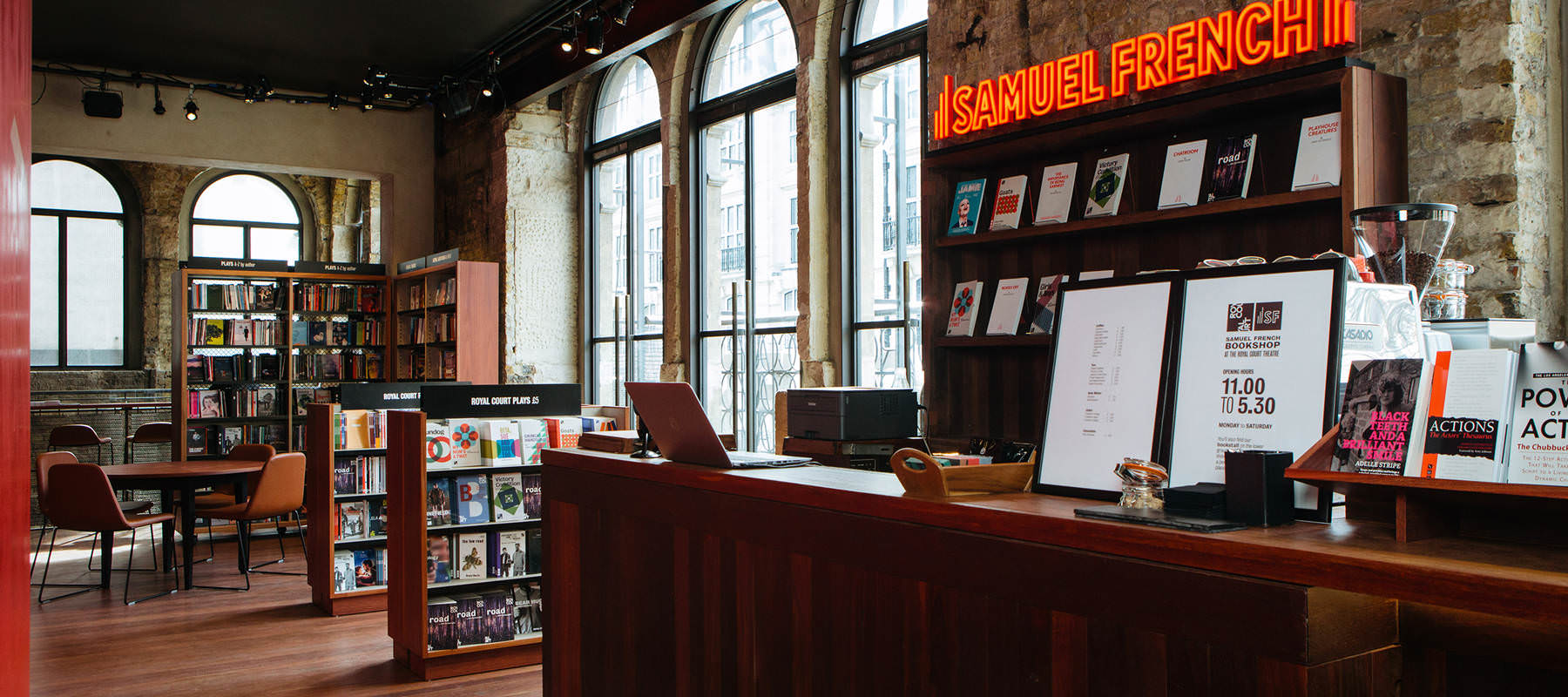How to choose the best audition speeches for drama school
Applying for drama school can be a daunting task. There are often multiple rounds of auditions, competition is fierce and the stakes are high. You don’t know exactly what the panel is looking for, who they have seen that day or even how many unconditional offers have already been given out. With so many factors out of your control, the one thing you can take complete control of is the speeches you choose that will showcase who you are and what you can do. This guide will help you to find great monologues and make the best choices.
Contents
Where to Find Monologues
To make the best choices we need to have strong options to choose from, and this can often be the hardest part. So where do you find good monologues?
Bookshops
If you live in London you could pop in to the National Theatre Bookshop or the Samuel French Bookshop at the Royal Court Theatre and explore their vast play collections. Other bookshops in London worth checking out are The Calder Bookshop & Theatre, Foyles and Judd Books.
Outside of London, you could explore Blackwell’s in Oxford, the RSC in Stratford-upon-Avon and Home in Manchester.
Theatres
For the latest and most exciting contemporary writing, take a look at the work coming out of some of the pioneering UK theatres that specialise in new writing. Have a look at the What’s On pages and archives for Bush Theatre, Royal Court, National Theatre, Soho Theatre, Arcola Theatre, Hamstead Theatre and Bristol Old Vic. Find out what’s been on recently and get to know the playwrights.
Online
Amazon Kindle offer free samples for the books they sell and often the samples are pretty generous. Downloading a sample will allow you to see the character list, read the opening scenes and get a feel for the style of the play. It’s a simple and free way to get started and if you don’t own a Kindle you can always download the Kindle app on your phone.
Google Books also offer free samples and can be a great way to get a sneak peek into a play without having to pay for it.
All Shakespeare and a large collection of classical plays and monologues can be found freely online with a quick search. For Shakespeare, shakespeare.mit.edu has every play in full and shakespeare-monologues.org has all the monologues.
Try to avoid contemporary monologues that you’ve found on Google. Online monologues aren’t always from full-length published plays and they can be poorly written.
It’s also a good idea to stay clear of YouTube. It’s really hard to work from a blank canvas and create a unique performance once you have someone else’s interpretation locked in your mind.
Ask a Friend
If you know other people who are applying for drama school, ask them for recommendations. They may have found something that’s not right for them but perfect for you.

Samuel French Bookshop at Royal Court Theatre (Photo by Helen Murray)
Contrasting Speeches
Most applicants are aware that they need to find two monologues which contrast but this should go beyond genre. A tragic classical and a comedic contemporary speech is a good start but the panel want to see you embody two individual, contrasting characters. Look for a character combination that shows a difference in power, status, energy, physicality, psyche.
Suitability
You want to find characters that showcase you and the types of roles that you’re suited to. Look for characters that are similar to you in age, roles that you can imagine playing right now, and make sure you know where the play is set; if it’s an American text it might not be suitable in a British accent.
It’s important to pick something you can deliver in your own voice. The panel want to hear your raw instrument so they know what they have to work with. You could, however, utilise your second speech to exaggerate your natural accent or to show an accent that is relevant to your ethnic background. This could give the panel a broader sense of who you are and allow you to find greater contrast in your characters. Please don’t mistake this for an opportunity to show off accents that have no relevance to you.
It’s perfectly suitable to consider switching the gender of a character. Hamlet, The Taming of the Shrew and The Tempest are just a few examples of plays which have upended traditional casting in recent high-profile productions. This should always be done with sensitivity and consideration for the wider context.
Real-time Dialogue vs. Narrated Speeches
Whilst it’s possible that any speech can get you noticed, I tend to find that narrated monologues don’t often serve you as well as conventional dialogue played out in real time. Narrated monologues jump in time and move through space, commenting on the action. This can be disorientating and distracting for the panel and they might not get the opportunity to see what they’re looking for. There may be a storytelling aspect to narrated monologues that is appealing but they can make it more challenging to show a truthful interaction with an imagined character, entity or audience.
Contemporary
What does contemporary really mean exactly? The postmodern era technically began in the 1940s but I’d recommend focusing on the newest, most up-to-date and relevant plays you can find. On the website for the Royal Central School of Speech and Drama they recommend speeches no older than 1960, I’d recommend looking at work from the last decade or so. A lot has changed in the last twenty years alone and the way characters are written has evolved to reflect our society. By finding something recent, a truthful performance might be easier to access, you may find more to relate to and there’s a higher chance that the panel haven’t heard it before.
Avoid monologue books. Always read the full play and arrive at your own interpretation.
Classical
You don’t have to do Shakespeare. There are plenty of other great Elizabethan and Jacobean playwrights worth considering: Christopher Marlowe, John Webster, Thomas Middleton, Thomas Dekker, Thomas Kyd (all the Thomas’s!), and more. But saying that, Shakespeare is always a great option. Don’t worry so much about classical speeches being overdone. There are certainly Shakespearian speeches that I’ve heard countless times and yet every now and again I’m utterly captivated by a performance that makes the text feel new and exciting.
Final tips
Read the guidance and stick to it, paying particular attention to the time limit.
Avoid mythical creatures. Sure, you can get into drama school with a sensational Puck (A Midsummer Night’s Dream) or Caliban (The Tempest) but the chances are you’ll make it harder for yourself. A human character will allow you to tick every box on the panel’s list; a mythical creature adds extra complication with little reward and discovering the creature might distract you from elements of a performance that the panel are more interested in seeing.
If you didn’t get in last year, consider changing your speeches; you may find more life, spontaneity and excitement in something new.


















Leave a Reply
Want to join the discussion?Feel free to contribute!